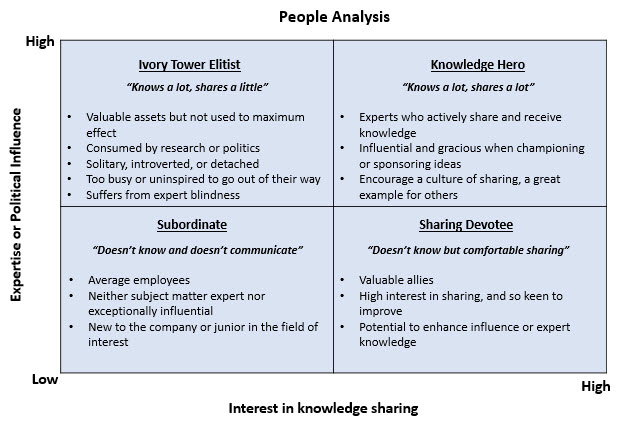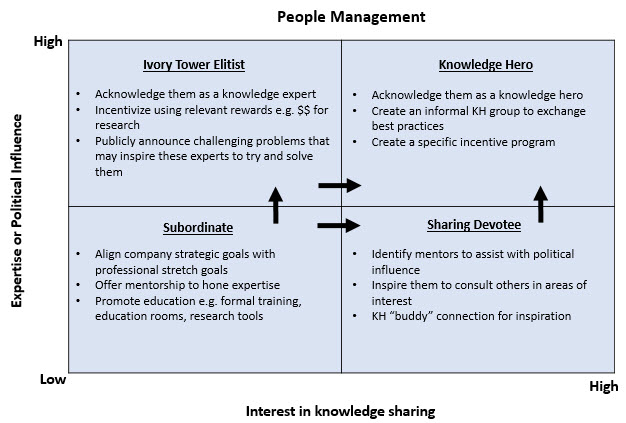In the last instalment, I wrote about a fundamental resource within high performing companies, people, and the ways in which internal and external motivation can direct the knowledge sharing process. You can read the full article here. I also claimed that managers have the power to motivate people working within an organisation to increase their knowledge sharing. In this instalment, I hope to guide your thinking on how managers can do this by introducing some simple frameworks.
Knowledge Heroes are knowledge experts who actively share their knowledge. While Knowledge Heroes are an incredible asset to your organization, not everyone will operate (or should be encouraged to operate) in this manner. In demanding careers (like management consulting) where personal resources such as time and effort are finite and often stretched to the limit, sharing knowledge in the wrong way or at the wrong time may be viewed in a negative light by colleagues and managers. Colleagues may view it as showing off, and managers may view it as a sign that the employee’s core responsibilities are being neglected.
In order to identify the Knowledge Heroes and manage them strategically, managers will find it valuable to conduct a deep dive analysis of the people in their organization. This will be beneficial by allowing managers to determine who is a knowledge expert and who is comfortable sharing what they know. Managers might group people into four categories using a simple framework like the one below:
After you understand your people’s level of expertise, influence, and interest in knowledge sharing, a valuable next step is to map out a management strategy that will begin to move the identified groups towards a more desired state. Your strategy should have a clear objective for each group and a calculated series of steps that need to be taken so that your people can make progress and ultimately arrive at “Knowledge Hero” status. A framework like the one in Exhibit B below may serve you well.
You should tweak this framework so that it is more specific, measurable, and relevant to your internal goals. I would also like to add that while the framework is presented as a two by two matrix, this kind of matrix often gives an over simplified view of the real world situation, and so can contribute towards perception bias (the tendency to be somewhat subjective about how information is gathered and interpreted).
Undertaking a study of all the people in your organization can be a timely process (especially if you are not going to hire a consulting firm to do the analysis) but I am a firm believer that success starts by looking internally. I always say: if you take care of yourself and your people, your people will take care of your customers, and your customers will take care of your success.
Before you get started with your analysis, you may be asking yourself the obvious question: “after I invest time and effort to grow my people into politically influential knowledge experts who enjoy sharing, won’t they just get head hunted away or decide to leave?” This is a very good question. We will explore the notion of employee turnover and some interesting research behind it in my next instalment, stay tuned!
Aneta Kosinska is a Polish-Canadian and soon to be dual master degree Ivey MSc + CEMS MIM alumni. Having worked on consulting projects in North America, Asia and Europe she has developed an international mindset with an edge in technology and culture management.
Image: Pexels


